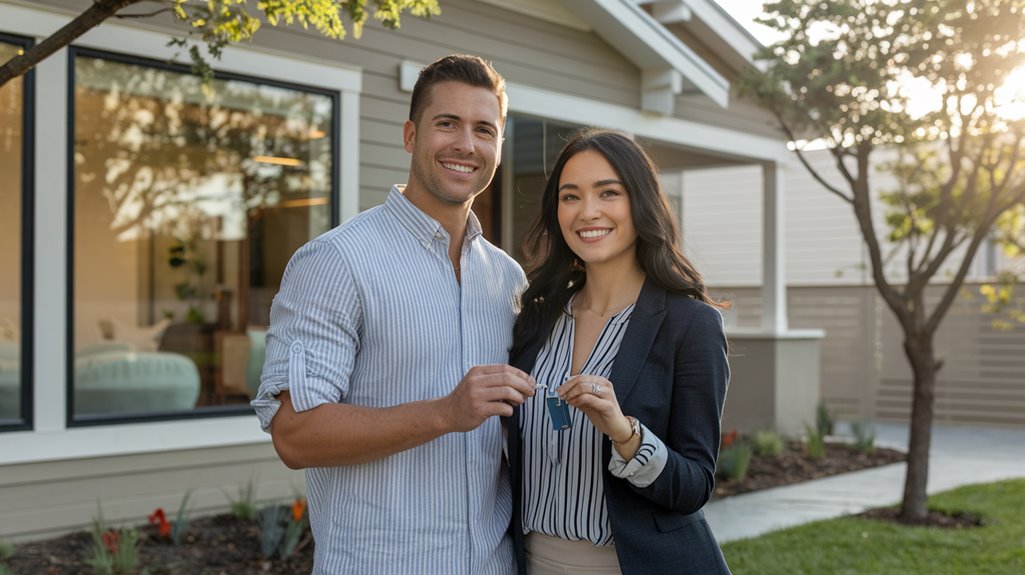Buying your first small home is a smart money move. You only need to pay a small amount upfront – about $6 to $10 for every $100 of the home's price. When you pay your monthly bill, you own more of your home bit by bit. Homes also tend to go up in value each year.
The government helps too. You can pay less taxes when you own a home. This means more money stays in your pocket each month. If you have extra space, you can rent out rooms to help pay your bills.
Most people stay in their first home for 5 to 7 years. In that time, your money can grow three times bigger! This happens because you own more of your home, pay less taxes, and your home becomes worth more over time. A small first home can help you build up your savings faster than you think.
Ready to start building equity in your own Michigan home? Get your personalized home loan quote today.
Understanding the Starter Home Advantage
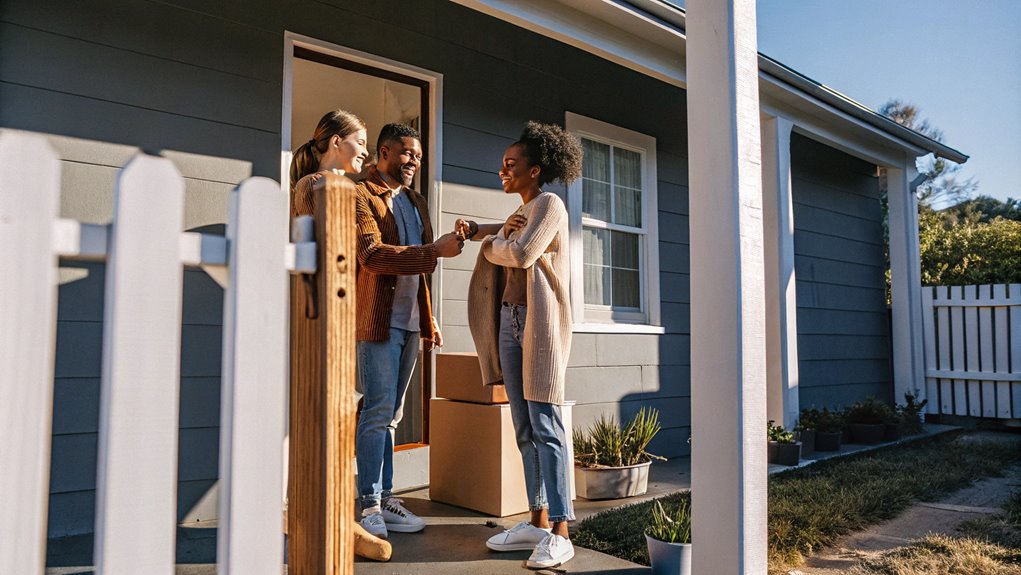
Buying your first small home is a smart way to start. A small home is cheaper and helps you save money over renting. It's like taking your first big step into owning a home.
Small homes cost less money to buy than big homes. You only need to pay a small part of the price up front – about 6 to 10 cents of each dollar. Big homes need more money up front – about 20 cents of each dollar. This means you can buy a small home much faster than waiting to buy a big one.
When you own a small home, you learn how to take care of it. You learn when to fix things and how to pay house taxes. These skills help you when you want to buy a bigger home later.
Best of all, your small home can grow in value just like bigger homes do, helping you save more money over time.
Michigan residents, unlock the door to your new home. Request your home loan quote from Treeside Financial today.
Building Equity Through Monthly Payments
Think of mortgage payments like putting money in your piggy bank each month. When you pay your mortgage, you're doing two good things: paying off what you borrowed and owning more of your home.
At first, most of your payment goes to the bank in fees. But later, more of your money goes to owning your home. This is better than renting, where your money just goes away each month.
Plus, homes often grow in value over time – about 3 to 5 cents for every dollar each year. This helps you save more money in the long run.
Principal Versus Interest Split
Your monthly house payment has two parts: money that pays down your loan (principal) and money that pays the bank (interest). At first, most of your payment goes to the bank as interest. But over time, more of your money goes to paying off your home.
Let's look at a $250,000 home loan that takes 30 years to pay off:
| Year | How Your Payment Splits Up |
|---|---|
| Year 1 | $20 pays your loan / $80 goes to the bank |
| Year 10 | $35 pays your loan / $65 goes to the bank |
| Year 20 | $60 pays your loan / $40 goes to the bank |
| Year 30 | $98 pays your loan / $2 goes to the bank |
This is good news for you. Even though you pay a lot of interest at first, each payment helps you own more of your home. Every time you make a payment, you owe less money on your loan.
Monthly Appreciation Over Renting
When you buy a home, your monthly payments help you own more of your house over time. Think of it like a piggy bank – each payment puts more money in your piggy bank.
Renters just pay their landlord and don't get to keep any of that money.
Houses often cost more as time goes by. This means your house can be worth more than what you paid for it.
Here's a simple way to think about it: If you buy a house for $300,000, it might be worth $9,000 more next year. That's like getting $750 more each month.
Plus, the money you pay on your loan helps you own more of your house.
This means you could be saving more than $1,000 each month by owning a house instead of renting.
Owning a home helps you save money in a way that renting never can.
Tax Benefits for First-Time Homeowners
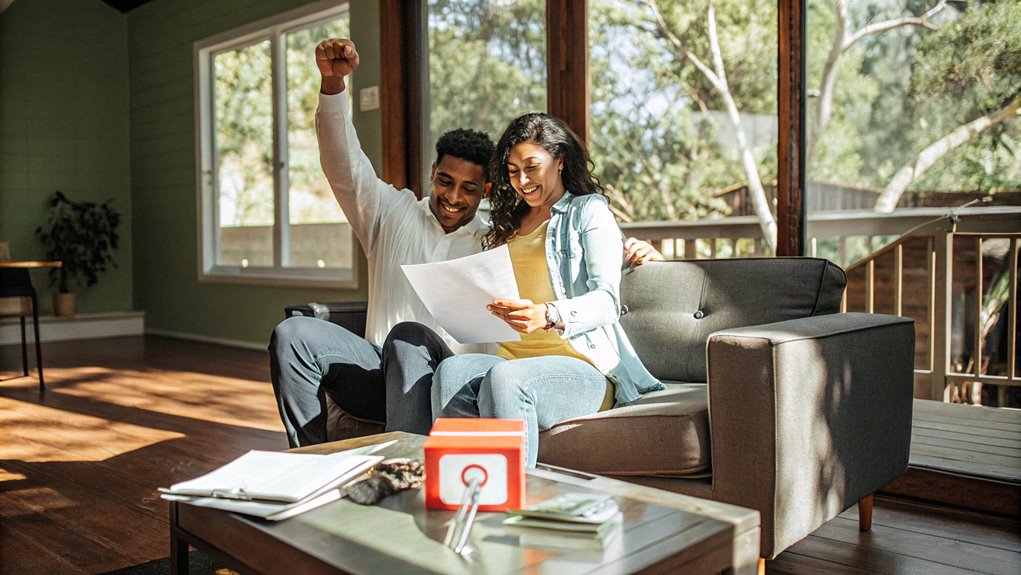
Buying your first home comes with great tax savings! Let's look at how you can save money.
When you own a home, the IRS lets you pay less in taxes. This saves you money that renters don't get to save.
What you can save on:
- The interest you pay on your home loan (if the loan is less than $750,000)
- Your home taxes (up to $10,000 each year)
- Part of your bills if you work from home
These savings help you spend less on your home each month. Over time, this means more money stays in your bank account.
Remember: When tax time comes, make sure to list all these costs to get your savings.
Leverage Your Purchasing Power
Getting a starter home is a smart way to make your money grow. You only need to pay a small part of the home's price at first – as little as 3% to 20%. But you get to own the whole home and watch its value go up over time.
Let's say you buy a home for $300,000. You pay $30,000 up front. If the home's value grows by 5% in one year, you gain $15,000. That means your $30,000 turned into $45,000!
Plus, when you pay your monthly bill, you own more of your home each time. Unlike paying rent, buying a home helps you build up money over time. This can help you buy a bigger home later or make other smart money choices.
The House Hacking Strategy
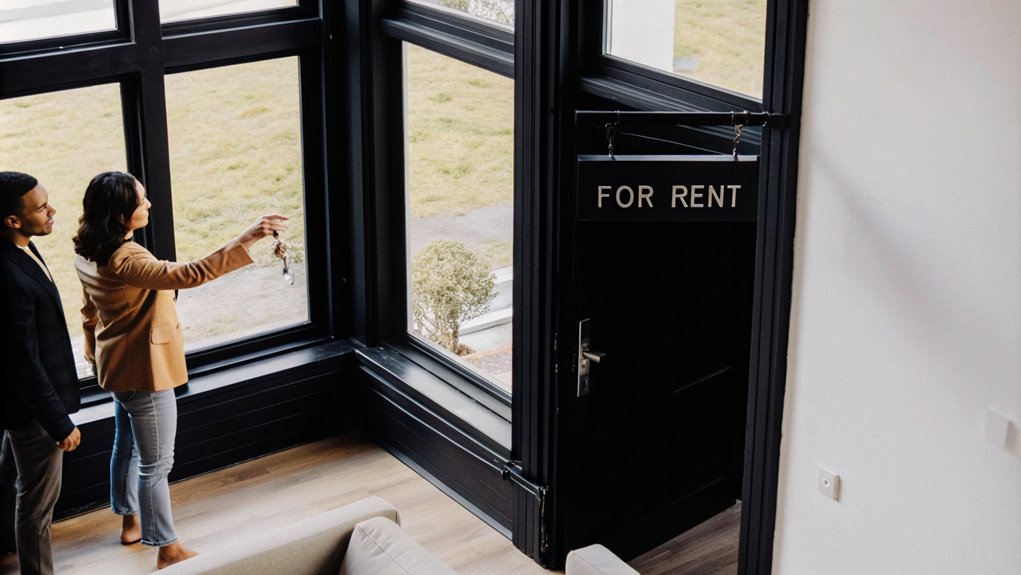
Living in your own home can be cheaper when you share it with others.
Think of your extra bedrooms as helpers that can pay your bills. When good people rent your rooms, they give you money each month. This money can pay for half or more of what you owe the bank for your house.
You still get to make all the house rules, but now you spend less to live there. As time goes on, you own more of your house while spending less of your own money.
This is a smart way to save money and own a home at the same time.
Rent Out Extra Rooms
Having friends live in your extra rooms can help pay for your home. Many people call this sharing their home. It's a great way to cut your monthly costs in half or more.
Want to find good people to live with you? Here's what helps:
- Get to know them first. Ask about their job and talk to people who know them.
- Write down the house rules. Be clear about rent, cleaning, and bills.
- Look at what others charge for rooms near you. Set a fair price.
Talk often with the people living in your home. Keep things friendly but also run it like a business. This way, everyone wins and feels good about sharing the space.
Income Covers Your Mortgage
Living with friends can help pay for your home. When you share your house with good roommates, their rent money helps cover your monthly house payment. This means you can live in your home while spending very little of your own money.
Here's how it works: Say you must pay $2,000 each month for your house. If two friends pay you $800 each to live with you, you get $1,600 in rent. Now you only need to pay $400 each month. That's much less than most people pay for a place to live.
Your friends' rent helps you own more of your house over time.
This plan works best in big cities where homes cost a lot and people pay high rent.
Future Rental Income Potential
Buying your first home can help you make money later. When you move to a bigger home, you can rent out your old one. This means you get money each month from people who live in it.
Many people who rent out homes make good money. For every $100 they put in, they get back $8 to $12 each year. Your home can do this too.
Three big things help you make money from rent:
- A home near jobs, good schools, and stores
- Lots of people who want to rent in your area
- A home that's in good shape and easy to take care of
Market Appreciation Over Time
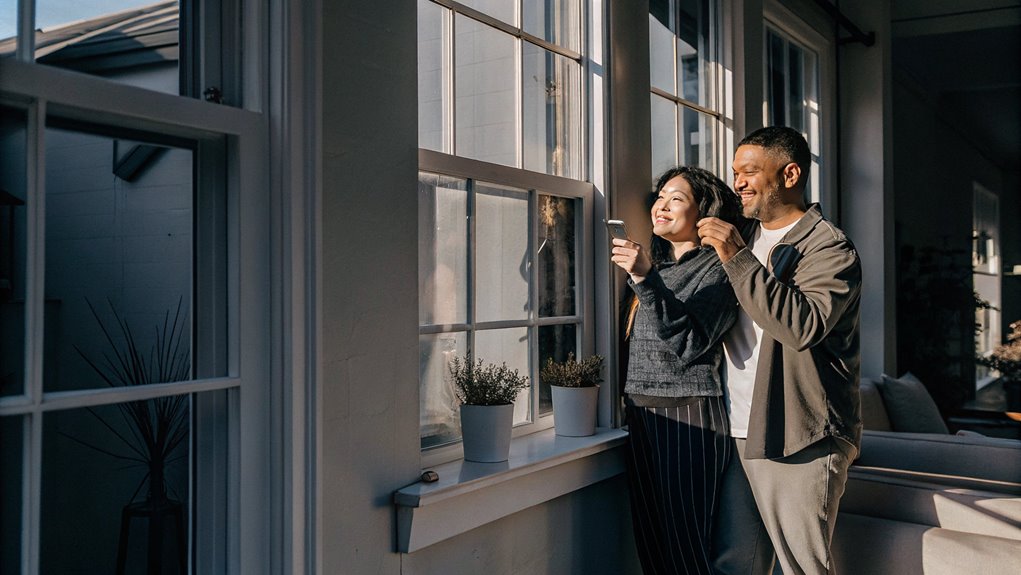
When you buy your first home, it's like watching a piggy bank grow bigger over time. Most homes in the U.S. gain about 4-6% more value each year.
Think of it this way – if you buy a home for $250,000 today, in five years it could be worth $304,000.
While homes often go up in value, it's not a sure thing. But some things can help your home grow in worth faster. These include:
- Being close to places with lots of jobs
- Living near good schools
- Having new roads or stores being built nearby
- Living in a part of town that's getting nicer
Before you buy a home, look for these good signs in the area. They can help you pick a home that will be worth more later.
This is how many people build up their savings through owning a home.
Upgrading When You're Ready
Moving to a bigger home is easier when your first home grows in value. When your home is worth more than what you paid, you can use that extra money to buy a nicer place. Many people use the money from selling their first home to help buy their next one.
You can often use the money from your first home to pay for:
- A big chunk of your new home's cost
- A better loan deal from the bank
- A nicer home in a better spot
Most people stay in their first home for 5-7 years. This gives them time to save up money from their home's rising value.
When they're ready, they can move to a home that fits their life better, like one with more rooms for kids or closer to work.

